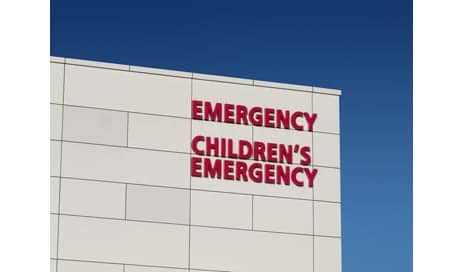Although it is longstanding practice to keep all children with head injuries in the hospital overnight, new research calls it into question in kids with simple skull fractures.
According to the study, published recently in the Journal of Pediatric Surgery, researchers from Ann & Robert Lurie Children’s Hospital suggest that kids may be sent home safely if they have no evidence of brain injury and no neurologic symptoms.
In the study, lead investigator Catherine Hunter, MD, and her team analyzed patient records from 71 children treated at Lurie Children’s Hospital for simple head injuries over a 10-year period. Among those analyzed, 78% were hospitalized overnight for observation, and none required additional imaging or treatment. All fared well and were sent home the next day. On average, each child’s overnight stay incurred an additional $4,291 in hospital costs, explains a media release from Ann & Robert H. Lurie Children’s Hospital of Chicago.
The researchers emphasize that their analysis focused exclusively on children with normal skull exams and no signs of neurological damage. Children with serious head traumas, loss of consciousness, and brain bleeding were excluded from the study.
“These ‘just in case’ overnight stays appear to be not only unwarranted and wasteful, but can be disruptive for the family and traumatic for the child,” says Hunter, a pediatric surgeon at Lurie Children’s and assistant professor of surgery at Northwestern University Feinberg School of Medicine, in the release. “Reducing the number of unnecessary hospitalizations can help generate substantial savings to individual patients and the healthcare system as a whole.”
“Our findings underscore the notion that not all head injuries are the same, and that kids with isolated skull fractures and no other symptoms may be perfectly safe going home,” adds Rashmi Kabre, MD, the study’s co-author and director of pediatric trauma at Lurie Children’s, in the release.
The researchers caution in the release, however, that any cases of isolated fractures that suggest non-accidental trauma or intentional injury, such as child abuse, require further evaluation and overnight observation, even if the child is neurologically intact.
[Source(s): Ann & Robert H. Lurie Children’s Hospital of Chicago, EurekAlert]





